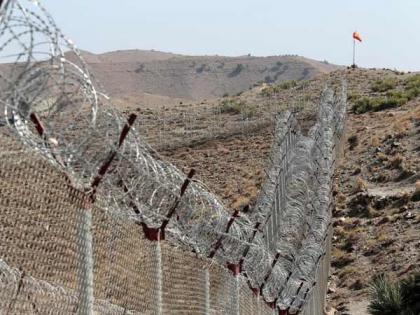Afghanistan-Pakistan border an escape route for terrorists, transit point for explosives: Coalition forces General
By ANI | Published: May 19, 2021 03:42 PM2021-05-19T15:42:29+5:302021-05-19T15:50:07+5:30
The International Security Assistance Force (ISAF) Deputy Chief of Staff, Maj Gen Richard Rossmanith on Wednesday said that the Afghanistan-Pakistan border is a long-term challenge.

Afghanistan-Pakistan border an escape route for terrorists, transit point for explosives: Coalition forces General
The International Security Assistance Force (ISAF) Deputy Chief of Staff, Maj Gen Richard Rossmanith on Wednesday said that the Afghanistan-Pakistan border is a long-term challenge.
Rossmanith, the top official of coalition forces fighting in Afghanistan, warned that the lengthy border with Pakistan is an escape route for terrorists and a transit point for explosives that may never be plugged, reported CNN.
"These borders, with respect to the terrain, may never be fully controllable," said Rossmanith.
"This always will be a challenge and we need to do a lot within the country to actually mitigate the challenges we face at the borders," he said from Afghanistan in a video link with journalists at the Pentagon.
He said that securing the borders is of particular importance to a counterinsurgency policy. But land-locked Afghanistan has thousands of miles of borders, including 2,500 kilometers (1,500 miles) with Pakistan, reported CNN.
US officials long have complained that insurgents come across the border from Pakistan and later return to safe havens in that country, beyond the reach of coalition forces.
Rossmanith and others confirmed that fertilizer, raw material for improvised explosives, also is smuggled into Afghanistan and used against US and allied forces, reported CNN.
Meanwhile, ISAF is working to boost the capabilities of Afghan forces. "Indeed, we have seen an increase in the Afghan border police in numbers and quality," Rossmanith said.
And he said new efforts are under way to increase effectiveness at border crossings and airports.
"We expect from all these activities an increase in security," he said. "On the other side, we should also be realistic."
The Durand Line is the international border between Afghanistan and Pakistan. It was fixed by British civil servant Sir Henry Mortimer Durand and the then Afghan Emir, Abdur Rahman Khan in 1893.
Not only does Afghanistan not recognise the internationally-accepted border with Pakistan, it also has territorial claims to regions stretching from the border to well-inside the boundary, which is almost 60 per cent of the area of Pakistan.
For a long time, Pakistan has aimed to make Durand Line the border and make Afghanistan accept the same, but Pakistan has met constant failure to do so, even with no success when the Taliban, which was created by Pakistan, remained in power from 1996 to 2001.
( With inputs from ANI )
Disclaimer: This post has been auto-published from an agency feed without any modifications to the text and has not been reviewed by an editor
Open in app